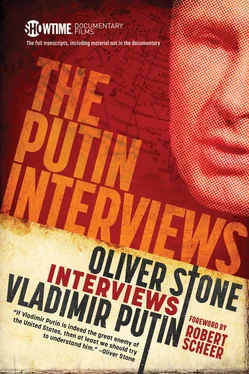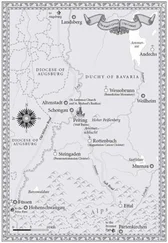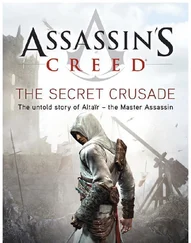VP:I do not read abstracts. I always read documents—the original ones. I never use analytical materials provided to me by the intelligence services. I always read separate documents.
OS:It’s interesting, I had that feeling. Your theory of life they say is summed up in the philosophy of Judo?
VP:Yes, more or less. The main idea—the flexible way, as it were—that’s the main idea in Judo. You must be flexible. Sometimes you can give way to others. If that is the way leading to victory…
OS:And at the same time there’s a rat story, which you told Mike Wallace, where you chased a rat, when you were a young boy I guess, with a stick, and the rat turned on you.
VP:It didn’t bite, but it tried to jump at me. And then I was the one to run from the rat. And there were the stairs, and there was a landing, then another flight of stairs. So it was like that—one leading down, then the landing, then another stairs. Even though I was very small I was still able to run faster than the rat. I had the time to run down the stairs, then the landing, and then down the other stairs. And do you know what the rat did? It jumped from one set of stairs to the other from above.
OS:Well, you pissed off the rat with the stick, right?
VP:Yes, I think that was the case.
OS:So in your philosophy with Judo it would be don’t push too hard sometimes—your opponent may look weak, but your opponent may turn on you.
VP:Well, I didn’t go into Judo back then. And the conclusion, I think, is somewhat different here. You know there is this famous saying: you should never corner a rat. And that’s exactly what I did. No one should be cornered. No one should be led to a situation which ends in a dead end.
OS:The oligarchs underestimated you. When you became president, they didn’t think you would last.
VP:You see, oligarchs are different. And that’s true. Among them there were those who were willing to conform to the system of relationship with the government that was being proposed to them. And they were told that no one was trying to infringe upon their property. They were told that the government would protect their property. Even if the previous laws had been unjust. The law is always the law. But that’s another rule to be observed.
OS:The law is always the law, unless it changes. People protest. In America, there was civil rights legislation. Many good things come out of protest—disobedience to the law.
VP:That’s also true, but our situation was different. I believe that the privatization laws at the beginning of the 1990s were not just. But if we were to conduct de-privatization, as I said before, it would have been even more damaging to the economy and to the lives of common people. And that’s what I told the big business leaders, that was a frank discussion. I told them that the previously-existing schemes were to be phased out of existence. I told them that laws were supposed to become fairer and more just. And I also told them that business was to assume more social responsibility. And many businessmen, the overwhelming majority of them, conformed to the new laws. Do you know who was not happy about the new laws? Those who were not true businessmen. Those who earned their millions or billions not thanks to their entrepreneurial talents, but thanks to their ability to force good relationships with the government—those people were not happy. They didn’t like the new laws. But there was just a handful of those. On the whole our relationship with business was good.
OS:Just to close on a note about Stalin. You know, you’ve said negative things about Stalin, and of course he’s widely condemned in the world. But at the same time we all know that he was a great wartime leader. He led Russia to victory over Germany, over fascism. What do you make of that ambiguity?
VP:I think that you are a cunning person.
OS:Why? We can discuss it tomorrow if you want.
VP:No, I’m ready to answer. You know, there was one prominent politician of the past, Winston Churchill. He was very firmly against Sovietism, but once the Second World War started, he was a great advocate of working together with the Soviet Union, and he called Stalin a great war leader and revolutionary. And after the Second World War, as is well known, it was Churchill who initiated the Cold War. And when the Soviet Union made the first nuclear test, it was none other than Winston Churchill who announced the need for a co-existence of two systems. He was a very flexible person. But I think that deep down in his heart, his attitude toward Stalin never wavered, never changed.
Stalin is a product of his era. You can try to demonize him however much you like. We try to talk about his merits in achieving victory over fascism. As to his demonization, there was such a person in history as Oliver Cromwell—he was a bloodthirsty man who arrived in power on the wave of a revolution and he turned into a dictator and tyrant. And monuments to him are still scattered all across Great Britain. Napoleon is deified. What did he do? He used the surge of revolutionary zeal and arrived in power. And he not only restored the monarchy, he pronounced himself Emperor. And he led France to a national catastrophe, to utter defeat. There are many situations, many people like that—more than enough in world history. I think that excessive demonization of Stalin is one of the ways to attack the Soviet Union and Russia, to show that the Russia of today has something originating from Stalinism. Well, of course we all have these birthmarks.
What I’m saying is Russia has changed radically. Well, of course something probably has remained in our mentality, but there is no going back to Stalinism, because the mentality of the people has changed. As to Stalin himself, he arrived in power with wonderful ideas that he was propounding. He was talking about the need for equality, fraternity, peace… But of course he turned into a dictator. I don’t think that in a situation like that anything else would have been possible. I’m referring to that particular situation in the world. Was it any better in Spain, or in Italy? Or in Germany? There are many countries where the government was based in tyranny.
But of course this doesn’t mean that he was not capable of bringing together the people of the Soviet Union. He managed to organize resistance to fascism. And he was not behaving like a Hitler. He was listening to his generals. And he even conformed himself to some of the decisions which were offered to him by his generals. This doesn’t mean, however, that we have to forget all the atrocities Stalinism committed—the destruction of millions of our compatriots, the extermination camps. These things are not to be forgotten. And he is an ambiguous figure. I think that at the end of his life he was in a very difficult position—a very difficult mental situation, I believe. But that requires an impartial study.
OS:And your father and your mother admired him, right?
VP:Yes, certainly. I think the overwhelming majority of the former Soviet citizens admired Stalin. Just as the overwhelming majority of the French admired Napoleon in the past—and many still admire him.
OS:I would like to just end on a quick, lighter note. I saw footage of you—it’s unbelievable—where you have learned… You obviously were not trained as a young man in these skills but you’ve learned how to play the piano. I saw that.
VP:Certainly. Recently a friend of mine taught me to play with two fingers a couple of very popular melodies.
Читать дальше












